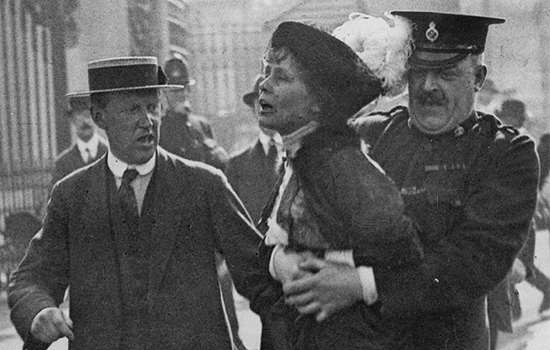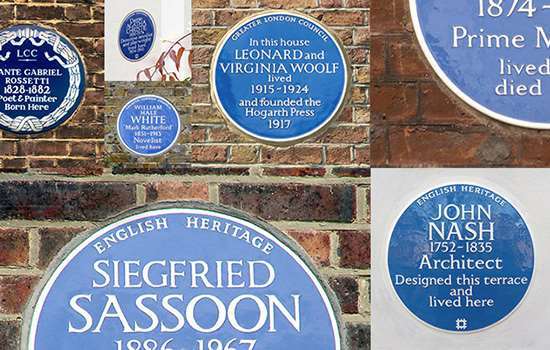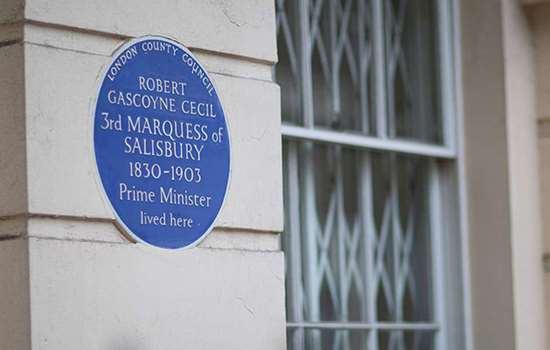MARSDEN, William (1796-1867)
Plaque erected in 1986 by Greater London Council at 65 Lincoln's Inn Fields, Holborn, London, WC2A 4LH, London Borough of Camden
All images © English Heritage
Profession
Surgeon
Category
Medicine
Inscription
WILLIAM MARSDEN 1796-1867 SURGEON Founder of the Royal Free and Royal Marsden Hospitals lived here
Material
Ceramic
William Marsden, the surgeon who founded the Royal Free and Royal Marsden Hospitals in London, has a plaque at Lincoln’s Inn Fields, just south of Holborn.
Cholera and The Royal Free
Born and raised in Sheffield, Marsden trained at St Bartholomew’s hospital in Smithfield and in 1827 was admitted to the Royal College of Surgeons – then, as now, based in Lincoln’s Inn Fields.
The defining moment of Marsden’s life came later that year when he found a young woman on the steps of St Andrew’s Church in Holborn, desperately sick from disease and malnourishment. In vain, he tried to find her a hospital bed, and she died two days later. Haunted by this, Marsden opened a free dispensary at Holborn Hill, close by the church, and later a hospital not far away at 16 Greville Street – the London General Institution for the Gratuitous Care of Malignant Diseases.
During the 1832 cholera epidemic this was the only foundation in London to admit and treat sufferers, and Marsden wrote a treatise on the disease, entitled Symptoms and treatment of malignant diarrhoea, better known by the name of Asiatic or malignant cholera (1834).
In 1837 the hospital became, by royal charter, the Royal Free. Success brought more patients and more donors – Michael Faraday, George Grote and Thomas Wakley were among Marsden’s backers. Five years later came a move to Gray’s Inn Road, to the premises more recently occupied by the Eastman Dental Hospital.
The Royal Free Hospital moved to Hampstead in 1978, by which time Marsden’s principle of free treatment at the point of use had become a founding pillar of the NHS.
Cancer and the Royal Marsden Hospital
Following the death of his first wife, Elizabeth Ann (Betsy), from cancer in 1846, Marsden reflected on how little was known about the illness that had claimed her. Five years later he founded the Free Cancer Hospital, dedicated to the study and treatment of the disease, and based initially at 1 Cannon Row, Westminster.
In 1862, helped by funding from the philanthropist Baroness Burdett-Coutts, the hospital moved to a new site at Fulham Road, Brompton. In honour of its founder, it became the Royal Marsden Hospital in 1954, and today it is among the world’s leading centres for cancer treatment and research.
Lincoln’s Inn
Marsden lived in Lincoln’s Inn Fields – then a popular address for surgeons – from 1846 until his death. The four-storey house, designed by Thomas Leverton, dates from 1772 and boasts Adam-style ceilings.
The plaque was put up at the suggestion of the the Royal Free Hospital and the Worshipful Company of Cordwainers, where Marsden was a liveryman.
Marsden’s obituary in the British Medical Journal – he died of bronchitis in Richmond-upon-Thames – called him
an energetic and worthy gentleman … like all men of mark [he was] self-contained, and did not ever give up an object he had fixed his heart upon [even when] he was opposed by great and authoritative personages.
Read more about Marsden on the Oxford Dictionary of National Biography, The Royal College of Surgeons, and the Royal Marsden


